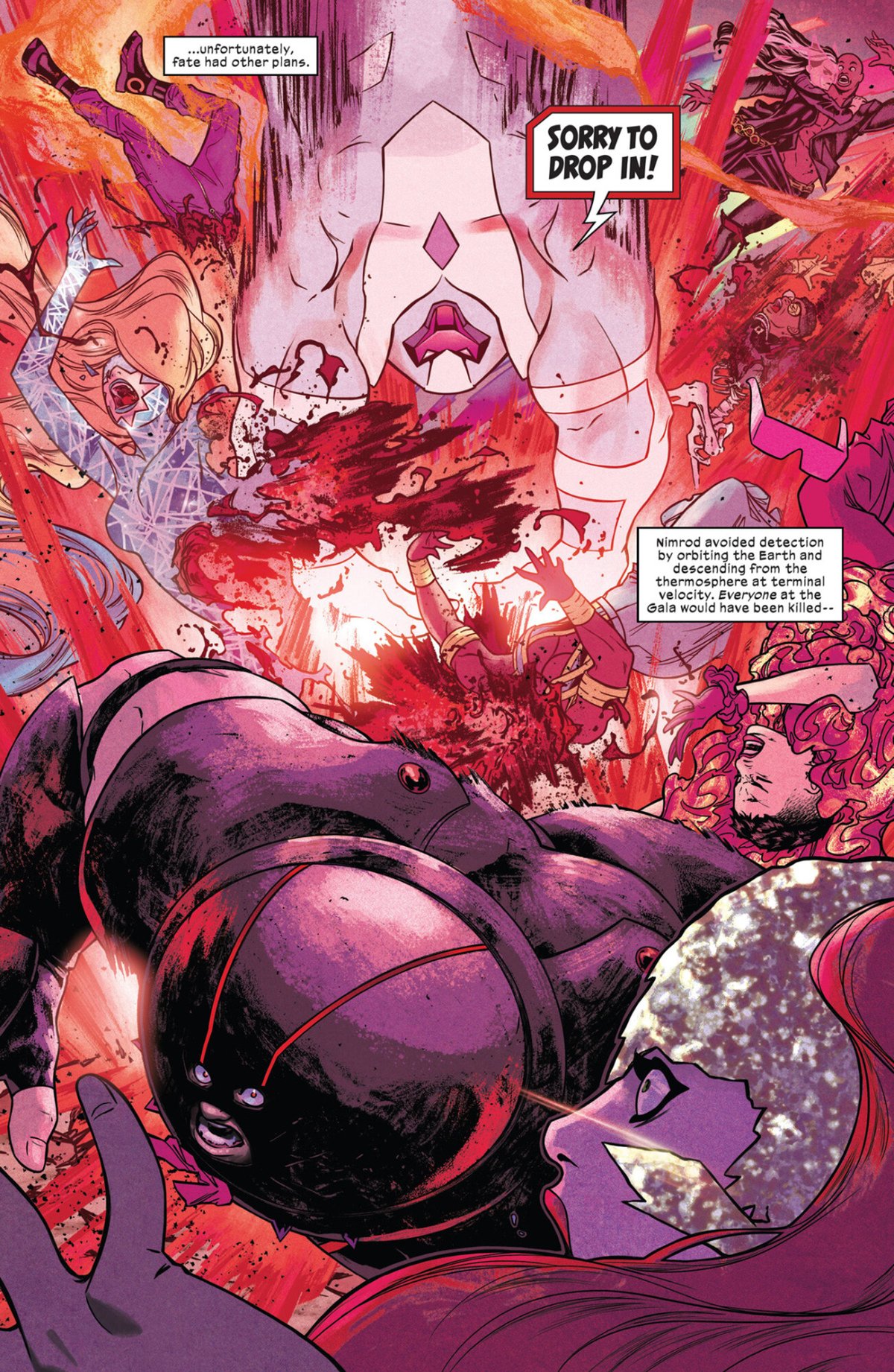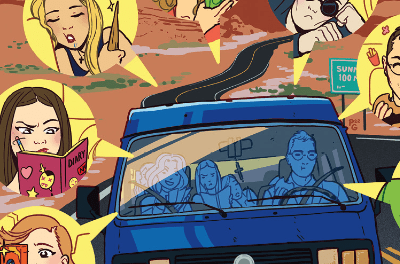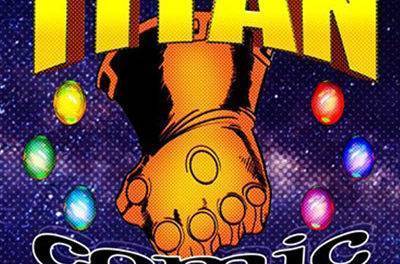The Mutant Metaphor is more relevant in the MAGA era than ever before. Where once Marvel’s mutants acted as a metaphor for racism or homophobia, now they map just as easily onto the aftermath of the 2024 American election. The inexplicable rise of Kamala Harris as a viable candidate for President, and most importantly the opposition to Donald Trump, seemed to unify the left/Democratic party in a way that felt much like the unlikely success of Krakoa. Only to have everything ripped away from us on the night of the November 5th. Like Nimrod crashing down on the X-men’s election in the Hellfire Gala.
Now the X-Men are in their “From the Ashes” era, directly following the “Fall of X” and the collapse of Krakoa. The X-Men and mutant population are scattered across the globe, having lost their homeland and suffered significant losses. They’re no longer a unified nation but a group of survivors. Much like those of us trying to survive the increasingly unavoidable authoritarian regime of MAGA and DOGE.
In Jed MacKay and Ryan Stegman’s X-Men, Scott Summers, ever the mutant leader and soldier, predictably holes up in Alaska and begins regrouping another activist team of freedom fighters. Scott’s X-Men represent the side of a fight that refuses to let go of their path even if it’s repeatedly proven to not work. The lack of conventionally recognizable past teammates represents the increasing recognition from his peers that he’s out of touch and represents an old way of thinking. Despite the inversion of tactics, this is similar to the centrist Democratic approach that brought us Biden and the fall of Harris. Where Scott always feels like taking a superhero’s stand and fighting for “What Is Right,” the Democrats own adherence to the least-objectionable, middle of the road stances in the face of extreme right-wing fascism is equally ineffective and dangerous.
Next is Eve Ewing’s Exceptional X-Men. Kitty Pryde has been an audience insert character to the X-Men since her very first appearance, and here I feel that she is once again the most relatable of the characters. In the hangover of her ultra-violent turn at the end of Fall of X, Kate has run from her past and is hiding in plain sight, trying to obtain as “normal” an existence as possible. But she’s brought back in simultaneously by her seeing younger versions of herself suffering in ways she remembers all too well and at the prodding and manipulation of her frenemy, Emma Frost. Looking down the barrel of Project 2025, even the most privileged of us living in quiet complacency are forced into the fray if we have any modicum of compassion, and some are brought into it kicking and screaming by strange bedfellows with a common enemy.
On a similarly relatable front are the young people in NYX by Kelly and Lanzing. Kamala, Sophie, Prodigy, Anole, and Laura are the ones left feeling the most adrift. They’re expected to pick up their lives in an uncertain future, as a fight that they didn’t choose or have a say in raged above and around them. But much like the younger generations in our current political struggle, we only need to look to them and their efforts in community building to find hope. Here I see the analogy of the younger generations being “built different” and the meme of Gen Alpha being the Honey Badger Generation, eschewing the faux pas of past generations in lieu of more logical collective action.
Some of the most popular mutants among readers – Logan, Rogue, Gambit, and Nightcrawler – have all been fringe players in their time with the X-Men. Now they find themselves drawn to one another out of comfort, not mission. In Gail Simone and David Marquez’s Uncanny X-men, they work to heal their own wounds and the wounds of those around them, looking for any way to help and work on community before revenge. Despite all being long-standing members, with most having led the team at one time, they all have dark pasts and as such, a more nuanced view of the world. It’s no secret that they would find each other, often by accident, in their efforts to isolate and separate themselves. Here is where we see the found families of marginalized LGBTQIA+, POC, and immigrant communities, who are all firmly in the crosshairs of Project 2025. However dire the next four years may be for them, they’re already veterans of fighting their own war for existence, and it is here that the Mutant Metaphor thrives in the wake of the 2024 election.
In these few flagship titles featuring Marvel’s most prejudiced and discriminated against heroes, we not only see the World Outside Our Window, but a blueprint for resistance – for what to do and what NOT to do in order to survive a regime that hates and fears us. Whether we choose the militant path of backing the Left no matter what like Scott in X-Men, bunker down with our chosen found families and keep up the good fight like Logan and Rogue in Uncanny, try to bury our heads in the sand only to be thrust into the conflict whether we like it or not like Kate in Exceptional, or seek out community like the young mutants in NYX, we all have a role to play if we’re going to survive the next few years of MAGA and DOGE.
————————–
JD Ketcham is a writer of imaginative fiction in comics and prose as well as the owner of Planet Fiction Productions. Otherwise, he’s been a professional musician, barista, bartender, and musical instrument repairman. When he’s not living in the Marvel Lake House, he’s an unabashed geek and aficionado of all things comic books, dogs, genre fiction, good coffee, and Irish whiskey.



